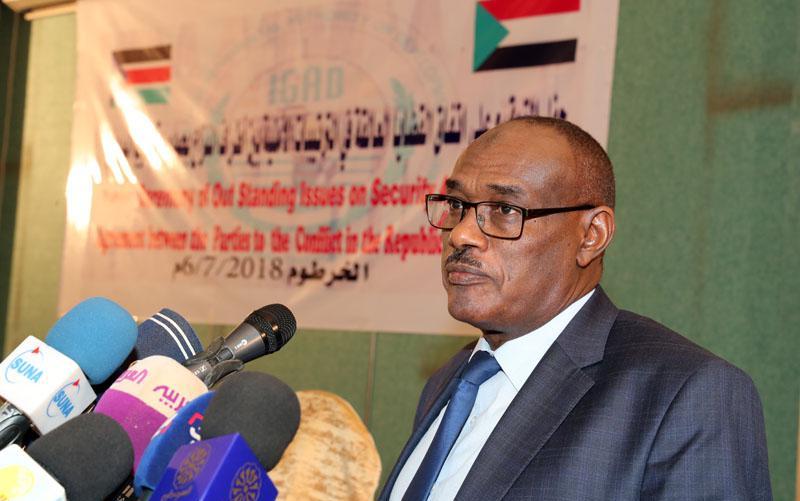Mediators release fresh proposals on S. Sudan governance reviewing IBC mechanism

July 25, 2018 (KHARTOUM/JUBA) – The mediators handed over to the South Sudanese negotiating delegations a new draft agreement on the governance chapter that amended the composition of the on the states boundaries mechanism but keeps the power-sharing at the local government level.
The government and the opposition groups alike rejected the draft agreement on the governance chapter issued by the Sudanese mediation ob 18 July citing reservations over some points mainly focused on the Independent Boundaries Commission (IBC) and the inclusion of the counties level in the power-sharing which was not part of the 2015 peace deal.
In a new version dated on 25 July seen by the Sudan Tribune, the mediation with the same ratio but sought to review the issues of contention between the parties particularly at the state level.
The latest draft maintains the IBC members at 15 but abandoned its rule of one representative for each South Sudanese party. Now, the South Sudanese government gets 5 members at this commission which will determine the fate of 32 states the opposition rejects.
The SPLM IO has two representatives, and the SSOA, FDs and OPP will get one delegate per group. Also, the IGAD, and Troika will lose their vote in the commission as they will be represented only at the expert level. While the African Union remains represented by five members from the C5 countries, (South Africa, Nigeria, Tanzania, Algeria and Chad).
In the previous draft, the IBC mandate is limited to study ” the alternatives currently proposed by the Parties and any other viable alternatives” but in the new draft IBC shall “study all viable alternatives in the light of guidelines that shall be drawn beforehand”.
Further, the decisional mechanism has been changed in the case the IBC members fail to reach a consensus. In the new draft, the decisions will be taken by “two-thirds of all its members that shall include at least seven (7) of its South Sudanese members”, abandoning the rule of the simple majority in the previous draft.
On Tuesday, the South Sudan Opposition Alliance (SSOA) declared their rejection of the power-sharing deal saying they will not “comprise on fundamental issues” referring to the IBC and their involvement in the administration of local governments.
In the draft of 25 July, the mediators have maintained the power-sharing ” ratio at State level and local government level” despite Juba’s opposition to this extension. Also, the mediation increased the ratio of the SPLM-Io to 27% from the initial 25% and reduced the percentage of the OPP form 10% to 8%. the incumbent government and SSOA kept the percentage 55% and 10% respectively.
Among the other changes brought in the new draft that the SPLM-IO will nominate the deputy speaker of the transitional legislative body. In the proposal of 18 July, the deputy speaker was from the OPP. This one now is the second deputy speaker.
Also, the mediation increased the number of the FDs Members of Parliament at the legislative assembly from 5 to 10 MPs and reduced the MPs of the OP to 30 from 35.
The Sudanese government invited the IGAD leaders to attend the signing ceremony on Thursday 26 July and Juba said willing to sign the agreement pointing they have one item they want to discuss with the mediation at the states level.
(ST)
